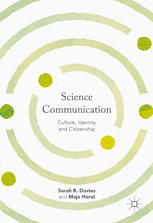

Most ebook files are in PDF format, so you can easily read them using various software such as Foxit Reader or directly on the Google Chrome browser.
Some ebook files are released by publishers in other formats such as .awz, .mobi, .epub, .fb2, etc. You may need to install specific software to read these formats on mobile/PC, such as Calibre.
Please read the tutorial at this link: https://ebookbell.com/faq
We offer FREE conversion to the popular formats you request; however, this may take some time. Therefore, right after payment, please email us, and we will try to provide the service as quickly as possible.
For some exceptional file formats or broken links (if any), please refrain from opening any disputes. Instead, email us first, and we will try to assist within a maximum of 6 hours.
EbookBell Team

4.1
90 reviewsThis book describes current practices in science communication, from citizen science to Twitter storms, and celebrates this diversity through case studies and examples. However, the authors also reflect on how scholars and practitioners can gain better insight into science communication through new analytical methods and perspectives. From science PR to the role of embodiment and materiality, some aspects of science communication have been under-studied. How can we better notice these?
Science Communication provides a new synthesis for Science Communication Studies. It uses the historical literature of the field, new empirical data, and interdisciplinary thought to argue that the frames which are typically used to think about science communication often omit important features of how it is imagined and practised. It is essential reading for students, scholars, and practitioners of science education, science and technology studies, museum studies, and media and communication studies.